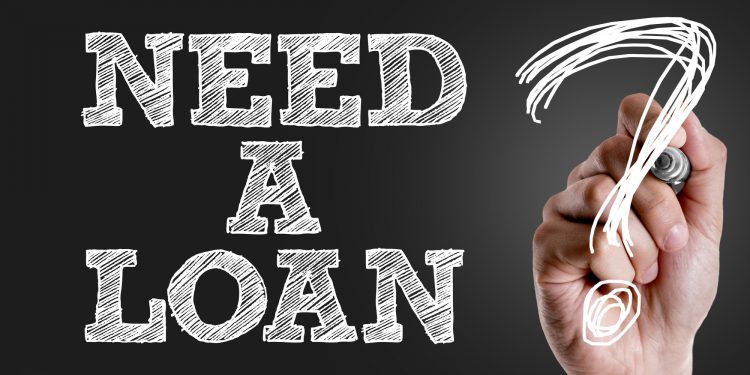The Role of Credit History in Protecting Small Company Loans for Business Owners
In the competitive landscape of entrepreneurship, safeguarding a little service finance often pivots on the essential factor of credit score ratings. A greater credit scores score can open up doors to positive funding problems, while a reduced rating might provide substantial obstacles.
Understanding Credit Rating
Credit rating ratings are essential mathematical depictions of a person's credit reliability, acting as a critical element in financial decision-making for lenders. These ratings are originated from a comprehensive evaluation of a person's credit rating, including facets such as repayment history, debt application, size of credit report, new charge account, and sorts of credit report utilized. Normally varying from 300 to 850, greater ratings represent reduced risk to loan providers, while reduced scores suggest greater threat.
The calculation of credit rating is executed by credit history bureaus using exclusive formulas, with the most widely identified versions being FICO and VantageScore. Each model might consider elements slightly in different ways, but they all objective to give a consistent measure of debt danger. A solid credit report shows the person's reliability in managing financial obligation, making prompt payments, and preserving a healthy and balanced equilibrium in between credit score utilized and available credit rating.
It is necessary for people and local business owner to understand their credit report, as these figures can have far-ranging effects past individual financing. Regularly monitoring one's credit history report, dealing with inaccuracies, and adopting sound monetary routines can dramatically improve credit history ratings, therefore improving the individual's total economic profile and creditworthiness.
Value for Car Loan Approval
Understanding one's credit rating is fundamental, as it plays a significant role in the process of car loan authorization for small companies. Lenders utilize credit history as a key metric to analyze the creditworthiness of applicants. A solid credit report indicates a history of accountable financial actions, suggesting to lending institutions that the applicant is likely to settle the loan on time. A high credit scores rating can significantly improve an entrepreneur's chances of securing a finance with favorable terms, consisting of reduced interest prices and more versatile repayment options.
As small businesses often call for prompt accessibility to funds for growth and sustainability, keeping a durable debt rating becomes necessary. Therefore, understanding and taking care of one's credit score is an essential component of preparing for car loan applications and attaining organization success.
Elements Affecting Scores
A number of elements contribute to the determination of a credit rating rating, each playing a critical function in forming an individual's debt account. A high ratio of used credit to readily available credit report can suggest monetary overextension, negatively affecting credit reliability.
Size of credit report likewise factors right into credit report rating estimations, with a longer credit report generally seen extra favorably. This statistics offers understanding right into the individual's long-lasting financial actions, offering lending institutions a broader perspective on their credit rating monitoring skills. In addition, the sorts of credit being used are considered, as a mix of credit history accounts, such as rotating bank card and installment lendings, can show the capability to handle different financial obligations.
Lastly, current credit queries may affect ratings (pre approval student loans). Regular applications for new debt can show monetary distress, hence negatively affecting the score. Each of these aspects is essential in the comprehensive analysis of a credit report, impacting a business owner's ability to secure a bank loan
Improving Your Credit Rating
Enhancing one's credit history belongs to supporting a yard; careful attention to essential areas can generate substantial renovations. To begin, guaranteeing prompt repayments on all credit report accounts is critical. Repayment history comprises a significant part of a credit score; therefore, establishing automated tips or settlements can help maintain uniformity. In addition, reducing financial obligation degrees is crucial. High credit report application ratios, or the quantity of credit used about the credit line, can adversely influence scores. Goal to keep usage listed below 30% of complete readily available credit scores.

Last but not least, keeping older charge click to investigate account can favorably influence the typical age of credit report, which is one more element in scoring designs. While brand-new credit questions should be lessened to stay clear of short-lived rating dips, responsible credit score monitoring gradually will normally result in rack up renovation, thus improving eligibility for desirable bank loan terms.
Alternative Funding Choices
Business owners with less-than-ideal credit ratings may locate these choices not only extra available however also customized to their unique organization demands. These systems usually supply much faster authorization procedures and even more adaptable terms than conventional financial institutions, usually considering aspects beyond credit report ratings, such as service performance and cash money flow.
An additional sensible alternative includes crowdfunding, where business owners can raise funding from a big pool of little capitalists by means of systems like Kickstarter or Indiegogo. This approach not only offers funds yet additionally validates organization concepts via straight engagement with prospective consumers. Furthermore, microloans, usually given by not-for-profit companies, deal with local business and start-ups. They supply smaller sized loan amounts with reduced rates of interest, making them perfect for business owners who need minimal capital.
Billing funding and seller cash breakthroughs are also worth considering. The previous includes offering outstanding invoices to a loan provider at a discount, while the last important source supplies a bear down future sales. Both choices can boost money circulation without the rigorous credit score needs of conventional lendings.
Conclusion

These ratings are obtained from an extensive analysis of a person's credit background, incorporating aspects such click as payment background, credit report use, size of credit score background, new credit history accounts, and kinds of debt utilized (pre approval student loans). A solid debt rating mirrors the individual's reliability in handling debt, making timely payments, and maintaining a healthy and balanced balance in between debt made use of and offered credit history
